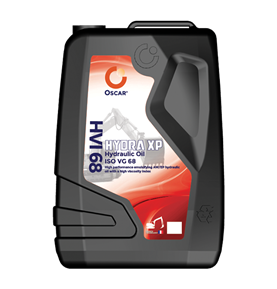
Hydraulic lubricant oils are essential for the smooth operation of hydraulic systems in various industries, including manufacturing, construction, and automotive. Selecting the right hydraulic lubricant oil is crucial to ensure optimal performance, efficiency, and longevity of hydraulic equipment.
Viscosity grade:
Viscosity is one of the most critical properties of hydraulic lubricant oils. It determines the oil’s resistance to flow and its ability to maintain a consistent film thickness between moving parts. The viscosity grade of hydraulic oil is typically classified by ISO viscosity grades, such as ISO VG 32, ISO VG 46, and ISO VG 68. Selecting the appropriate viscosity grade depends on factors such as operating temperature, equipment manufacturer recommendations, and hydraulic system requirements.
Additive package:
Hydraulic lubricant oils often contain additives to enhance their performance and protect hydraulic systems from wear, corrosion, and oxidation. Common additives include anti-wear agents, antioxidants, rust inhibitors, and anti-foaming agents. When choosing hydraulic oil, consider the specific additives required to meet the demands of your hydraulic system and operating conditions. For example, if your equipment operates in high-pressure or high-temperature environments, opt for hydraulic oils with robust anti-wear and oxidation-resistant additives.
Compatibility:
Ensure that the hydraulic lubricant oil you choose is compatible with the materials used in your hydraulic system, including seals, hoses, and other components. Incompatible oils can cause seal degradation, leakage, and other performance issues, leading to costly repairs and downtime. Consult equipment manufacturer recommendations and compatibility charts provided by lubricant suppliers to select compatible hydraulic oil that won’t adversely affect your hydraulic system components.
Environmental considerations:
Environmental factors such as temperature extremes, humidity, and contamination levels can impact the performance and lifespan of hydraulic lubricant oils. Choose hydraulic oils with excellent thermal stability, water separation properties, and resistance to contamination to ensure reliable operation in diverse environmental conditions. Additionally, consider using environmentally friendly hydraulic oils that meet regulatory requirements and minimize ecological impact, especially in environmentally sensitive areas.
OEM recommendations and specifications:
Refer to equipment manufacturer recommendations and specifications when selecting hydraulic lubricant oils for your machinery. OEMs often provide guidelines and specifications for hydraulic fluids that are compatible with their equipment and designed to deliver optimal performance. Adhering to OEM recommendations ensures warranty compliance, maximizes equipment lifespan, and minimizes the risk of equipment failure due to improper lubrication.





